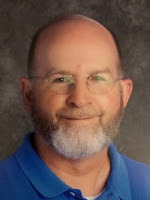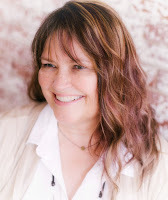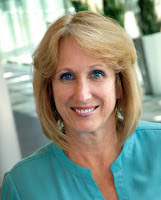Edie Melson's Blog, page 151
September 12, 2021
How to Keep Technology from Interfering with Your Writing & Speaking Life

by Yvonne Ortega @YvonneOrtega1
This post is a follow-up for When Health in Writers Who Speak Interferes with Technology
As writers who speak, our reliance on technology increases. However, we need to use computers and related equipment with wisdom. Let’s look at two areas where our use of technology may require changes.
Our workstation may need a change.
My friend found a creative solution for her workstation. She placed a large book under her computer and two large ones under her feet. That way she doesn’t look down, and her feet don’t dangle.
I prefer not to place my shoes or feet on books. You may feel the same way. Furthermore, I don’t stay in one room because of excessive sunlight from the windows or storms with either lightning or hailstones. I use yoga blocks under my feet. They are lightweight, durable and available online or in a yoga store.
If we travel, we may not be able to carry large books with us or have access to someone else’s at our destination. In that case, yoga blocks would work.
Our bodies may need attention.
Painful arthritis or stiffness can be in our neck, shoulders, back, hip, or knees. If we choose to do so, we can attend a virtual event daily. We will save money on travel, meals, and lodging, and the recordings from some events will be available for several months or a year.
Yet, without balance in attendance at those virtual events, we lack the time to listen to the recordings, take notes, alternate between sitting and standing, and exercise because of arthritis.
I searched for a lightweight adjustable tabletop or desk to move from room to room or travel with.
Not one to give up, I discovered a solution online that may work for you, too. The Moft-Z is “a foldable 5-in-1 sit-stand laptop desk.” It’s 9.4 x 11 x 0.5 inches. The Moft-Z weighs a little over two pounds, comes in different colors, and holds up to eighteen pounds.
Because the Moft-Z is lightweight, you and I can pick it up and move it anywhere at home. We can also fold it and slip it in a tote bag or an office on wheels.
You can see it at https://www.amazon.com/MOFT-Invisible-Sit-Stand-Ajustable-Compatible/dp/B089GQKDNH?ref_=ast_sto_dp&th=1&psc=1
Bottom Line
If our use of technology interferes with our health, we benefit when we make changes in our workstation or body position.
TWEETABLEHow to Keep Technology from Interfering with Your Writing & Speaking Life - @YvonneOrtega1 on @EdieMelson (Click to Tweet)
 Yvonne Ortega walks with a small footprint but leaves a giant imprint in people’s lives. This power-packed package is a professional speaker and the author of the Moving from Broken to Beautiful® Series through cancer, divorce, forgiveness, and loss. Learn more at WWW.YVONNEORTEGA.COM
Yvonne Ortega walks with a small footprint but leaves a giant imprint in people’s lives. This power-packed package is a professional speaker and the author of the Moving from Broken to Beautiful® Series through cancer, divorce, forgiveness, and loss. Learn more at WWW.YVONNEORTEGA.COMYvonne speaks with honesty and humor as she shares her life and struggles through presentations that empower women to find peace, power, and purpose through God’s Word.
Yvonne’s background as a licensed professional counselor brings a unique perspective into the heart of women. She’s a speaking and writing coach and the owner of Moving from Broken to Beautiful®, LLC. She belongs to the Advanced Writers and Speakers Association, the Christian Authors Network, the National Speakers Association, and Toastmasters International.
She celebrates life at the beach, where she walks, builds sand castles, blows bubbles, and dances.
September 11, 2021
Knowing the Why

by Martin Wiles @LinesFromGod
“Why are you here?”
The question penetrated my mind as none other had for quite some time. I could tell by the expressions on the faces of the other teachers that it piqued their interest as well.
We sat in our first In-Service meeting before the beginning of what we hoped would constitute a normal year after a year of constant change brought by our friend COVID. But this year would prove different than any others—including the one we had just come through.
The question came from our Upper School principal, just after he had shown us a video clip, detailing one man’s opinion of how success in learning, in business, and in life happens. The speaker called it the Golden Circle. He drew three interlocking circles and wrote the words “Why,” “How,” and “What” in them, beginning from the inner and proceeding to the outer. His conclusion? People will learn and buy based on our “Why,” not our “How” or “What.”
Suddenly, we understood the question our Upper School principal posed. If we didn’t know the “Why,” our customers—students and parents—wouldn’t care about the how or the what. And what did he want our why to be? The same thing Paul wanted Titus’ why to be. The same thing he wanted all church leaders’ why’s to be: to know God’s message and to share it with others.
“He must have a strong belief in the trustworthy message he was taught; then he will be able to encourage others with wholesome teaching” (Titus 1:9 NLT).
Later that evening, our Head of School paraded every teacher before our new students and their parents. He had instructed us to share three things: who we were, how long we had taught at the school, and—most importantly—why we were there.
The reason our Head of School hoped we worked there was that God had called us, because we wanted to see our students know Christ, and because we wanted to show them how to let their walk with God influence every decision they made. We needed to make an impact, just as Paul wanted all church leaders to do.
To a degree, impact just happens, somewhat like influence. But for the impact to constitute what God desires, we have to be intentional. For teachers, that meant looking for opportunities to integrate a biblical worldview into our academic teaching. For us as believers, it means opening our spirits to God’s Spirit, so we don’t miss daily opportunities He sends us to do the same.
Never will there come a time when God will finish with our impact. As long as we can take a breath, we can find ways to impact others with the good news and with the principles of God’s Word.
I planned for the coming school year to be different from any others I had experienced. I now knew my why.
Do you know why you are here?
TWEETABLEKnowing the Why from Martin Wiles, @LinesFromGod on @EdieMelson (Click to Tweet)
 Martin Wiles is the founder of Love Lines from God (www.lovelinesfromgod.com) and serves as Managing Editor for Christian Devotions, Senior Editor for Inspire a Fire, and Proof Editor for Courier Publishing. He has authored six books and has been published in numerous publications. His most recent book, A Whisper in the Woods: Quiet Escapes in a Busy World, released in December 2019. He is a freelance editor, English teacher, author, and pastor.
Martin Wiles is the founder of Love Lines from God (www.lovelinesfromgod.com) and serves as Managing Editor for Christian Devotions, Senior Editor for Inspire a Fire, and Proof Editor for Courier Publishing. He has authored six books and has been published in numerous publications. His most recent book, A Whisper in the Woods: Quiet Escapes in a Busy World, released in December 2019. He is a freelance editor, English teacher, author, and pastor.
September 10, 2021
Find Joy in Your Writing by Remembering to Write in Faith

by Edie Melson @EdieMelson
Now faith is confidence in what we hope for and assurance about what we do not see (Hebrews 11:1 NIV)
This verse is one of the first verses I learned when I began memorizing scripture. But until today, I had never thought about applying it to my writing. This morning I was texting back and forth with a fellow writer, trying to encourage her to move forward and leave the result up to God.
You see, November is National Novel Writing Month. Or in the vocabulary of writers, NaNoWriMo. The goal is to write fifty thousand words in one month. The plan was started to help writers get a story down, before editing. A good idea, but the schedule carries with it a lot of pressure. That bur-den was what my friend was dealing with.
So I texted that my friend should sit down at the computer and write in faith. As I hit send, the
words were highlighted and hit me like a message from God. I knew, in that moment, that I desperately needed to take my own advice.
Let me explain. To get ready for NaNoWriMo, I’d been working hard at mapping out a fiction manuscript. I’ve gotten to know my characters, researched the location, even brainstormed the major plot points.
But still I was overcome with doubt and indecision every time I sat down to write.
I had forgotten that, prepared or not, the out-come of my writing is in God’s capable hands. Sure I need to be obedient and do my homework. But then, I needed to leave the results up to him.
Even the small results.
He’s in charge of how each scene turns out, as well as how the book turns out, and even whether it’s published or not. And his supervision doesn’t only apply to fiction—He has plans for our devotions, articles, blog posts, even our social media up-dates. Beyond that, He cares about the people who will read and when they read it.
My part is small—obedience. I know, it’s not easy, but the big stuff is Gods. It’s not my place to think too far ahead in the process.
So that day I sat down and wrote with this rev-elation in mind—and the joy returned.
The pressure had disappeared and the fun of playing with the words returned. So join me, as I move forward—Write in faith!
To help you get started, I've also included this prayer for your writing.
A Prayer for Deeper Faith
So faith comes from hearing, and hearing by the word of Christ (Romans 10:17 NASB)
Dear Lord, I’m struggling with my writing. I’m discouraged and need a fresh infusion of Your strength. Increase my faith and don’t let me keep spiraling down this road of negativity.
I love writing—at least I used to—but now it seems that there is so much tied to it that I can’t feel that love. In my mind, everything I do is tied to results and I know that can’t be right. The results are up to You. My part is obedience. Help me turn off my mind.
Help me redirect my anxious thoughts into peaceful paths. Give me a clear line between my part and Your part. I want to return to the freedom and joy of concentrating on the words and what You want to say through me. Take away my stress about where the words will go and who will read them.
Let me see how my words are being used by You—not enough for me to become prideful—but enough to lead me into a deeper faith. Return my joy of writing for You. It’s amazing that You would want to use me as part of Your work in this world. Remove the worry and doubt and replace it with faith. Amen.
TWEETABLEFind Joy in Your #Writing by Remembering to Write in Faith from @EdieMelson (Click to Tweet)
*This is an excerpt from Soul Care for Writers (Bold Vision Books 2019)
 Edie Melson is a woman of faith with ink-stained fingers observing life through the lens of her camera. No matter whether she’s talking to writers, entrepreneurs, or readers, her first advice is always “Find your voice, live your story.” As an author, blogger, and speaker she’s encouraged and challenged audiences across the country and around the world. Her numerous books reflect her passion to help others develop the strength of their God-given gifts and apply them to their lives. Connect with her on her WEBSITE, through FACEBOOK, TWITTER and on INSTAGRAM.
Edie Melson is a woman of faith with ink-stained fingers observing life through the lens of her camera. No matter whether she’s talking to writers, entrepreneurs, or readers, her first advice is always “Find your voice, live your story.” As an author, blogger, and speaker she’s encouraged and challenged audiences across the country and around the world. Her numerous books reflect her passion to help others develop the strength of their God-given gifts and apply them to their lives. Connect with her on her WEBSITE, through FACEBOOK, TWITTER and on INSTAGRAM.
September 9, 2021
Write a Powerful Testimony Using These 5 Elements

by Joshua J. Masters @JoshuaJMasters
Writers often bare the depths of their souls in the pages of their work. Every broken character, every tension-filled moment, each non-fiction revelation whispers our life experiences.
Many authors prefer to keep their own stories hidden beneath the protective veil of another character’s words. But sometimes, the most powerful story is not the one we’ve crafted, but the story of restoration God’s written in our personal lives.
Writing our testimony is a great writing exercise, but it also prepares us to share our story—maybe not under the unforgiving, burning lights of a stage, but certainly when God places someone in front of us who can identify with our story.
Even skilled writers can find it daunting to write their own story because it requires us to write with an emotion-filled objectivity we rarely use. That sounds like a contradiction, emotion-filled objectivity, but that’s why this exercise can feel so overwhelming.
As a Celebrate Recovery pastor, I’ve helped many of people prepare and edit their testimonies.
They all believe two lies.Their testimony will help no one.Sharing their secrets will be devastating.The opposite is true. Every testimony is the story of God’s victory, so they always help others—and sharing their past always sets them free from the cage of those memories.
Whether it’s Celebrate Recovery or some other ministry program, all testimony outlines have the same basic structure: who you were before Christ, your introduction to Christ, how Christ changed your life, and the encouragement others should find in your story.
But how do we weave that story together?
GETTING STARTED
Always start with prayer—not a thirty-second nod before you start typing, but a dedicated time to seek God as you ask Him these questions:What aspects of my life and restoration do You want me to focus on in this piece?What passages and verses do You want me to reflect on? Which ones did You use to transform me?What part of my past are You asking me to be more transparent about?What secrets are You asking me to confess?Would you remind me of the miraculous things You’ve done to intervene in my life?Would you remind me what areas of my life You’re still working on?As you ask these questions, it may be helpful to journal your time with God. Then choose one area of your story to focus on in your testimony. You’re not writing a memoir, so you can’t cover every aspect of your past or spiritual journey. Pick a particular area God has transformed in your life and channel everything through that lens.
You may write multiple testimonies. For example, my primary testimony is about how I tried to run away from God’s calling in my life. But I have a second testimony that specifically deals with the terrible financial decisions I made and how pursuing a healing relationship with Christ led to a debt-free life.
Several focused testimonies are better than one long monologue about everything that’s happened in your life.
Are you ready to get started?
Here are five elements of a powerful testimony:
1. MY LIFE BEFORE CHRIST (OR A TIME OF NOT TRUSTING CHRIST)A tale of redemption is only as powerful as its transparency about the life lived before the redemption. Many Christians want to sugar-coat their old lives, but others find the hope of the Gospel in what He rescued us from. It’s vital that we’re honest about the mistakes, hurts, and suffering of our origin stories.
It’s also important that our old lives don’t dominate the story. After all, 2 Corinthians 5:17 says we’re not that personal anymore, right? So, don’t let this section of your testimony overshadow the rest of your written witness. Allow the five elements to remain balanced with a greater focus on parts 3 and 4 below.
Here are a few questions you can ask yourself to write this section:What were my greatest stumbling blocks before I met Christ?What did I think of God, myself, and others?How did my past hurts affect my behavior?Who were the positive influences in my life and how did I respond to them?How did the circumstances of my life affect my relationships?How did unforgiveness keep me trapped?What was my lowest point?2. MY TURNING POINTWhile this is often the shortest part of a testimony, it may be the most crucial. After reaching that low point in your life, what was the transitional moment that made you pursue a healing relationship with Christ?
Ask yourself:What was the moment I realized I couldn’t do it on my own?How did God intervene?What were my first steps in changing course?Who or what helped me turn to Christ?How did my relationship with Christ begin?3. MY HEALING IN CHRISTOnce you’ve shared your moment of rescue, it’s time to share the larger healing process. Theologians call this sanctification, but it’s really the story of your spiritual growth. If you’re looking to have a balanced testimony, make sure this section, along with the next, make up half of your testimony.
Ask yourself:How has pursuing a healing relationship with Christ influenced my healing?What programs or areas of the church were instrumental in my spiritual growth?What was the most difficult thing to change in my life?What Scriptures have had the most profound effect on my spiritual growth?What did I experience with God that I hadn’t before?In what ways did I resist God at this stage of my spiritual growth?What changes did I see in myself and those around me?4. MY NEW LIFE IN CHRISTIf we’re still breathing, God’s not done with us (see Philippians 1:6). So, this section isn’t about presenting our lives as perfect. That will only discourage people. Instead, we want to be honest about the things God is still working on in our lives while pointing to the transformation Christ’s made in us despite our past, especially in the areas of struggle we described in the first section of our testimony.
Ask yourself:What is it like to be free from the stumbling blocks I wrote about earlier?How has God transformed my thinking (Romans 12:2)?How do I feel about myself now that I’ve experienced God’s love and forgiveness?How has this transformation affected my relationship with God and others?How did it feel to forgive those who hurt me?How has my life changed?How has my walk with Jesus changed?What is God still working on in my life?5. ENCOURAGEMENT TO OTHERSThe fifth and final section of your testimony might not be more than two paragraphs, but it’s vital to use your story to encourage others. From a writing perspective, this is the powerful last scene that allows the reader (or listener) to realize they can experience the same hope in Christ you’ve found.
Here are some questions to consider:How am I serving Christ in a way that would have been impossible in my old life?What Scripture passage has been most encouraging to me?What words of encouragement do I have for someone facing the same stumbling blocks?What has my experience proved about the character of God?What action step would I recommend to those who are struggling?AFTER IT’S WRITTENThe most remarkable thing about writing your testimony is how God reveals even greater healing as His story in your life spills out onto the page. And there’s still more healing when you share it with someone face-to-face or in a small group.
After you’ve written your testimony, go back into your prayer closet and ask God to reveal where He wants you to share what He’s done in your life.
TWEETABLEWrite a Powerful Testimony Using These 5 Elements - @JoshuaJMasters on @EdieMelson (Click to Tweet)
 Joshua J. Masters is a pastor, author, and speaker with a heart for encouraging others. His book on prayer, AMERICAN PSALMS, was a Serious Writer’s Book of the Decade finalist. He’s been featured on CBN Television, HIS Radio, the Light Radio Network, and worked in the film industry as a member of SAG-AFTRA performer. He is a regular teacher and speaker for large groups. A self-proclaimed sci-fi and comic book geek, Josh loves film, pop culture and is known in some circles as THE BAT PASTOR. Joshua was raised in the White Mountains of New England and now serves as a pastor in South Carolina where he lives with his wife, Gina, and their miniature poodle, FRANKLIN THE PUP, who is the subject of his latest book. Josh would love to connect with you on his website, JOSHUAJMASTERS.COM
Joshua J. Masters is a pastor, author, and speaker with a heart for encouraging others. His book on prayer, AMERICAN PSALMS, was a Serious Writer’s Book of the Decade finalist. He’s been featured on CBN Television, HIS Radio, the Light Radio Network, and worked in the film industry as a member of SAG-AFTRA performer. He is a regular teacher and speaker for large groups. A self-proclaimed sci-fi and comic book geek, Josh loves film, pop culture and is known in some circles as THE BAT PASTOR. Joshua was raised in the White Mountains of New England and now serves as a pastor in South Carolina where he lives with his wife, Gina, and their miniature poodle, FRANKLIN THE PUP, who is the subject of his latest book. Josh would love to connect with you on his website, JOSHUAJMASTERS.COM
September 8, 2021
Perseverance For Writers: Finding the Write One When the Others Won’t Work

by Julie Lavender @JLavenderWrites
Thomas Edison supposedly once said, “I have not failed. I’ve just found ten thousand ways that won’t work.” Some question whether the statement is based on facts or legend, and the number often waffles between 10,000 and 1000.
Nevertheless, the inspiring quote motivates the would-be inventor, the wanna-be writer, the aspiring artist.
Let’s hope your book pitches and article queries haven’t surpassed even 100 “this one doesn’t work” rejections, but we can certainly be encouraged by those who have faced rejection and yet persevered.
A favorite motivational quotable in the writerly world often centers around a particularly successful children’s author, Dr. Seuss. The highly successful (though some of his work has recently come under scrutiny) author faced 27 rejections before his first book was accepted.
In case you’re thinking of giving up, let me encourage you with others who faced rejection and kept plowing through darkness, marching towards the flicker of hope in their hearts.
You may have heard some of these rejection-turned-into-success stories, but I hope they’ll inspire you on the journey.
Even though I’ve never watched an entire episode, let alone an entire season of American Idol, I’m always fascinated by those rejected that go on to do great things.
For examples of the show’s success stories, and accomplishments in other arenas, check out these stories of perseverance: Moriah Peters, wife of For King and Country singer Joel Smallbone, met rejection on the show’s tryout, reportedly because she shared some of her Christian commitments during the audition. Several successful albums later, she’s still singing!Christian singer Colton Dixon, a favorite on the show for part of the 11th season, was eliminated before the season ended. When faced with the rejection, he told US Weekly, “I know God will use me to do other things.” He was nominated for New Artist of the Year just one year after his elimination from the show, and his Christian songs top charts and win awards consistently.Lauren Daigle, with three rejections from American Idol a decade ago, just recently returned to the show to perform and serve as a mentor to other contestants. Finishing third in her season on the show, Melinda Doolittle is a singer, writer, and philanthropist whose backup singer credits include Michael W. Smith and CeCe Winans. Mandisa, eliminated from the 2006 show, released her first full-length album one year after the Idol rejection. It debuted in the number one spot on the Top Christian Albums charts, marking a first-time accomplishment for a new female artist. One of Oprah Winfrey’s first professional positions, a primetime co-anchor role, ended in the failure of the news show.Two studios rejected George Lucas’ Star Wars space fantasy before 20th Century Fox agreed to take a risk on the movie pioneer. Michael Jordan tried out for the varsity basketball team as a sophomore in high school. He didn’t make the varsity team, but honed his skills on the junior varsity team that year instead.J.K. Rowling received dozens of rejection letters from notable publishing houses before she found one to publish her first of many Harry Potter novels.Milton Hershey failed miserably, several times, to successfully operate a candy factory. Stephen King’s first work, Carrie, received 30 rejections before receiving a nod for publication.Walt Disney’s newspaper career ended when he was told he wasn’t creative enough, and his Mickey Mouse cartoons were rejected because they were “too scary for women,” reportedly.
How’s your rejection status going, dear friends? Have you accumulated a wealth of rejections thus far? Then, you must be on the right path to find that successful “yes,” because you’ve already found most of the ways that won’t work, right?
Don’t give up.
No, dear brothers and sisters, I have not achieved it, but I focus on this one thing: Forgetting the past and looking forward to what lies ahead, I press on to reach the end of the race and receive the heavenly prize for which God, through Christ Jesus, is calling us. Philippians 3:13-14 NLT
TWEETABLEPerseverance For Writers: Finding the Write One When the Others Won’t Work from @JLavenderWrites on @EdieMelson (Click to Tweet)
 Julie Lavender, author of 365 Ways to Love Your Child: Turning Little Moments into Lasting Memories (Revell), loves sharing God-stories in her paper and has written over 1000 newspaper articles thus far. Connect with Julie on social media – she’d love to help you earn writing credits by submitting to your local paper!
Julie Lavender, author of 365 Ways to Love Your Child: Turning Little Moments into Lasting Memories (Revell), loves sharing God-stories in her paper and has written over 1000 newspaper articles thus far. Connect with Julie on social media – she’d love to help you earn writing credits by submitting to your local paper!
September 7, 2021
Collaboration: Tips for Writing with Someone Else—Publishing as a Second Language, Part 1

by Linda Gilden @LindaGilden
One of the most fun and exciting ways to write a book is to find a like-minded writer and collaborate. Or is it?
At your first thought of co-authoring, you probably immediately make a list of your writing friends. After all, who wouldn’t like to spend hours writing a new book with your best writing buddy.
Here are several things you may need to take into consideration.
1. Even if you are good friends, friendship is different from co-authorship. Enjoying each other’s company is one thing. But hours editing and picking your words apart is not a party. It is hard work. And sometimes you and your co-author may have different ideas about the importance of specific information or where it should be placed in the book. I’m not saying writing with your best friend can’t work, but you will want to make sure it’s a good fit before you get started on a book project.
2. Do you need an expert as a co-author to give your book credibility? You may have learned something you really wanted to share with others but an important part of your new knowledge is technical, clinical, or medical based. A co-author who is an expert in that field would be a great choice because it would being extra credibility to your words. That is a win-win situation because not only does it bring credibility to your writing, the expert will have a book he or she can share with others.
3. Make sure your personalities will work well together. If you and your co-author have spent a lot of time together, you probably know the positives and negatives of your co-author’s personality. If you are a check list person and your co-author prefers to ponder every word, make sure you both understand that your methods of writing are very different and vow not to get aggravated with the other person’s way of working.
I have had wonderful co-authors and the experience only brought us closer together. But I am sure that is because we knew what each of us would be responsible for before we ever started. We knew each other’s strengths and made plans to capitalize on those strengths. For example, one of us was very strong in organization so she was in charge of making sure the layout of the book made sense. The other had tremendous strength as an editor so much of her job was done once the words were already on paper.
4. Before you start your book, make sure you have everything in writing. Create a contract that covers any questions that may arise. We will talk more about contracts in a later post.
Are you thinking about co-authoring? Choose wisely and ask God to show you the best person to co-author your next book.
TWEETABLECollaboration: Tips for Writing with Someone Else—Publishing as a Second Language, Part 1 from @LindaGilden on @EdieMelson (Click to Tweet)
 Linda Gilden has coauthored 11 books with 5 different coauthors and has #12 and #13 coming out in 2022, adding a new co-author to the list. She loves every one of her coauthors and enjoys collaborating on interesting projects with them. She also has written many books on her own and realizes what a treasure and blessing a good co-author is.
Linda Gilden has coauthored 11 books with 5 different coauthors and has #12 and #13 coming out in 2022, adding a new co-author to the list. She loves every one of her coauthors and enjoys collaborating on interesting projects with them. She also has written many books on her own and realizes what a treasure and blessing a good co-author is.
September 6, 2021
The Three Essentials Of Writing Non-Fiction

by PeggySue Wells @PeggySueWells
Though they look slightly different, the same three essentials needed to create a compelling fiction project are the same essentials used to write an excellent non-fiction.
Compelling stories have three key ingredients. We identified these essentials in How To Create Characters Your Reader Cares About asA character the audience cares aboutThe character’s great and seemingly impossible-to-achieve needAn insurmountable obstacle between the character we care about and the great need the character must achieveFor instance, in the fiction story, A Christmas Carol, Scrooge is the curmudgeon the reader becomes invested in. The audience turns pages to learn if Scrooge will continue to respond to Christmas with, “Bah Humbug.”
Scrooge has a great and seemingly impossible-to-achieve need to transform from a cold-hearted miser who hates Christmas. Without redemption, friendless Scrooge will not see next year’s holiday’s festivities.
The insurmountable obstacle between Scrooge and the great need he must achieve is Scrooge’s inability to transform himself. Who or what can be the change catalyst?
The similar but different use of the three essentials in non-fiction is: A character the audience cares about is the audience. Your reader is the character we care about in a non-fiction project.The character’s great and seemingly impossible-to-achieve need is for the reader to become the person the reader longs to be.An insurmountable obstacle between the character we care about and the great need the character must achieve are the challenges, problems, and road blocks that the non-fiction book addresses. For example, when Pam Farrel and I wrote The Ten Best Decisions A Single Mom Can Make, the single mom is the character we care about. In a sense, single moms are the main character of our book.
The single mom’s great and—depending on the day—seemingly impossible-to-achieve need is to thrive as a solo parent, crafting a healthy and successful life for her and her child.
The insurmountable obstacle between the single mom and who she longs to be are the myriad challenges, problems, and roadblocks outlined in the ten chapters of the book. The non-fiction book identifies the problems challenging our main character (the reader), and offers options that can help our reader navigate from where they are to where they want to be.
While fiction recounts a character’s challenges and how the character reacts and responds, non-fiction provides pathways for the reader to react and respond in ways that can bring the reader to their desired destination.
Whether you write fiction, non-fiction, or both, incorporate these three essentials to make your project compelling.
TWEETABLEThe Three Essentials of #Writing Non-fiction from @PeggySueWells on @EdieMelson (Click to Tweet)
 Tropical island votary and history buff, PeggySue Wells parasails, skydives, snorkels, scuba dives, and has taken (but not passed) pilot training. Writing from the 100-Acre wood in Indiana, Wells is the bestselling author of twenty-eight books including The Slave Across the Street, Slavery in the Land of the Free, Bonding With Your Child Through Boundaries, Homeless for the Holidays, and Chasing Sunrise. Optimistic dream-driver, PeggySue is named for the Buddy Holly song with the great drumbeat. At school author visits, she teaches students the secrets to writing, and speaks at events and conferences. Connect with her at www.PeggySueWells.com, on Facebook at PeggySue Wells, and Twitter @PeggySueWells.
Tropical island votary and history buff, PeggySue Wells parasails, skydives, snorkels, scuba dives, and has taken (but not passed) pilot training. Writing from the 100-Acre wood in Indiana, Wells is the bestselling author of twenty-eight books including The Slave Across the Street, Slavery in the Land of the Free, Bonding With Your Child Through Boundaries, Homeless for the Holidays, and Chasing Sunrise. Optimistic dream-driver, PeggySue is named for the Buddy Holly song with the great drumbeat. At school author visits, she teaches students the secrets to writing, and speaks at events and conferences. Connect with her at www.PeggySueWells.com, on Facebook at PeggySue Wells, and Twitter @PeggySueWells.
September 5, 2021
How Do I Define Writing Success in a Comparison Driven World?

by Kristin Hogrefe Parnell @khogrefeparnell
Are you a writing success? If you’ve ever been asked that question, you know there are dozens of ways to answer it. All of them depend on a definition of success that is a moving target at best and a comparison trap at worst.
Should we set goals, dream dreams, make plans, and faithfully practice the calling God has given us? Yes, yes, yes, and yes.
But what happens when doors close or plans change or God redirects? Are you therefore a “failure” because you didn’t achieve overnight success, or your story looks different than the writer next door?
A Biblical Perspective on Success
One of my favorite stories in Scripture is Joseph’s. You can read his full account starting in Genesis 37. The Cliff Notes version is that he went from favorite son to slave to prisoner to Pharoah’s right-hand man.
What made him a success was not his ultimate elevation to second in command of Egypt. Joseph was successful wherever he went—from the darkest prison to Pharoah’s throne room—because God was with him.
Four times in Genesis 39, Scripture records that the Lord was with Joseph in his lowest moments and made him to prosper even there.
“The Lord was with Joseph, and he was a successful man; and he was in the house of his master the Egyptian” (Genesis 39:2 NKJV).“And his master saw that the Lord was with him and that the Lord made all he did to prosper in his hand” (Genesis 39:3 NKJV).“But the Lord was with Joseph and showed him mercy, and He gave him favor in the sight of the keeper of the prison” (Genesis 39:21 NKJV).“The keeper of the prison did not look into anything that was under Joseph’s authority, because the Lord was with him; and whatever he did, the Lord made it prosper” (Genesis 39:23 NKJV).Some of us need repetition to learn, and Scripture certainly provides it here. Joseph’s success didn’t depend on his location, his status, or his position. It depended on the Lord’s presence in His life.
A Different Definition of Success
The world might define success by how you answer these questions:
Is your income in the six digits?Are you a best-selling author?Is your contract with the largest publishing house?Have you won the most coveted awards?Just to be clear, none of those achievements are wrong. (Remember the goals and dreams we mentioned earlier?) If God blesses you in these ways, you should certainly celebrate and give Him the glory. However, material gains and personal victories are not the end-all for success.
The Bible says that “godliness with contentment is great gain” (I Timothy 6:6 NKJV). Great gain sounds a lot like success to me. Instead of focusing on the questions above, let’s consider a second set of questions.
Are you exercising your gifts and asking God to make room for them where He sees fit?Are you pursuing the opportunities God has given you?Are you content with God’s approval regardless of what people say?Do you invite God into your day and seek His face in both the important and mundane activities on your calendar?All of these qualities were true of Joseph. If they are true of you as well, my friend, then you too are a success.
TWEETABLE
 Kristen Hogrefe Parnell writes novels, learns something new every day, and runs for pizza. An educator and mentor, she teaches English online and is an inspirational speaker for schools, churches, and podcasts. Her young adult dystopian novels, The Revisionary and The Reactionary, both won the Selah for speculative fiction, and she signed with Mountain Brook Ink for a new romantic suspense series, coming December 2022. Kristen and her husband live in Florida and enjoy sharing their lake home with family and friends. She blogs at KristenHogrefeParnell.com where she challenges readers to find faith in life’s everyday adventures.
Kristen Hogrefe Parnell writes novels, learns something new every day, and runs for pizza. An educator and mentor, she teaches English online and is an inspirational speaker for schools, churches, and podcasts. Her young adult dystopian novels, The Revisionary and The Reactionary, both won the Selah for speculative fiction, and she signed with Mountain Brook Ink for a new romantic suspense series, coming December 2022. Kristen and her husband live in Florida and enjoy sharing their lake home with family and friends. She blogs at KristenHogrefeParnell.com where she challenges readers to find faith in life’s everyday adventures.
September 4, 2021
So Many Words

by Audrey Frank @AudreyCFrank
And when you pray, do not heap up empty phrases as the Gentiles do, for they think that they will be heard for their many words (Matthew 6:7).
Think about it for a moment. In Matthew 6:7, He who is the Word (see John 1:1-3) instructs us about words.
Just pause and let that sink in.
He who created land, sky, and sea with words, He who spoke a word and silenced the storm pauses to teach you and me how to use words.
Experts at the World Economic Forum say that by 2025, the amount of data generated each day on planet earth will reach 463 exabytes.
What is an exabyte, you may ask? I’m still trying to remember the difference between megabytes and gigabytes.
An exabyte is 1000 bytes to the sixth power. To put this in perspective, all the words ever spoken by humans fit into only five exabytes.
What on earth are we all talking so much about? What is the reason for so many words?
According to Matthew 6:7, one big reason is that we want to be heard.
I know this is true of myself. When I sit down to pound out my words on the keyboard, my soul rises with longing to be heard. To be understood. To write or speak words that make the world a better place.
Don’t you?
The heart of Jesus’ message in Matthew is the value of words, beginning with the words we use to talk to God.
Words written should begin with words prayed.
It is here, in the sanctum of prayer, that words find worth. Words weighed before heaven have weight on earth.
In the place of prayer, words are refined, measured, and sifted. Unnecessary words dissipate as the necessary take strong shape and form, stepping forward as agents of change in a broken world.
Pray first, write second.
The words Jesus recommends are first and foremost words spoken in secret to the Father. The phrase in secret is used six times in Matthew 6:1-18. Jesus is urging us to speak our words to the Father in secret before we stand in public. He invites us to kneel first before the One who knows what we need before we ask, to seek the One who sees in secret and rewards us for what we speak when no one is looking.
There is an invitation here. Do you see it?
If it were to arrive in your post today, it might read something like this, dear writer.
You are Invited To Speak in Secret With the Word Himself
TodayTomorrowEvery Day
Attire: As You Are
Please note all who accept this invitation to the secret place will be rewarded generously with words that will change the world.
Lord, help me cultivate the habit of coming to You first with my words. Amen.
TWEETABLESo Many Words, encouragement from @AudreyCFrank on @EdieMelson (Click to Tweet)
 Audrey Frank is an author, speaker, and storyteller. The stories she shares are brave and true. They give voice to those whose words are silenced by shame, the hard things in life that don’t make sense, and the losses that leave us wondering if we will survive. Audrey and her family have spent over twenty years living and working among different cultures and world views, and she has found that God’s story of redemption spans every geography and culture. He is the God of Instead, giving honor instead of shame, gladness instead of mourning, hope instead of despair. Although she has three different degrees in communication and intercultural studies, Audrey’s greatest credential is that she is known and loved by the One who made her.
Audrey Frank is an author, speaker, and storyteller. The stories she shares are brave and true. They give voice to those whose words are silenced by shame, the hard things in life that don’t make sense, and the losses that leave us wondering if we will survive. Audrey and her family have spent over twenty years living and working among different cultures and world views, and she has found that God’s story of redemption spans every geography and culture. He is the God of Instead, giving honor instead of shame, gladness instead of mourning, hope instead of despair. Although she has three different degrees in communication and intercultural studies, Audrey’s greatest credential is that she is known and loved by the One who made her.Audrey is the author of Covered Glory: The Face of Honor and Shame in the Muslim World (Harvest House Publishers), an outpouring of Audrey’s heart to introduce others to the God of Instead. Shame is not unique to the developing world, the plight of the women behind veils, young girls trafficked across borders; shame is lurking in hearts everywhere. Through powerful stories from women around the world, Covered Glory illuminates the power of the Gospel to remove shame, giving honor instead. Available at favorite booksellers: BARNES & NOBLE , BOOKS A MILLION, AMAZON.
September 3, 2021
What to Do When Writing is Hard—Conquering the Writer's Mountain

by Tim Suddeth @TimSuddeth
It’s funny how writing is so much like going on a hike. We set off with so much enthusiasm and such great intentions. Maybe, we even bought new North Face hiking shoes and a new backpack. We get on the trail, enjoying the smells and sounds of nature as we walk through the woods. Then, as we emerge from a grove of trees, we catch our first sight of the mountain.
And all the enthusiasm just leaks out of us. We notice the blister starting from our new shoes that suddenly seems too tight. And why didn’t someone say something about the bugs.
No matter where you are on your writing journey, you are going to run up against another mountain. Whether it’s getting an idea, finishing your work, finding an agent or publisher, getting through all the edits, marketing, platform… Okay, I’m stopping now. I’m depressing myself.
Like anything that is worth doing, writing is going to have its hard times. There are times it going to take more effort than others. (Parents, can you say two o’clock feedings?) And there are times when you’ll have to decide, is it worth it?
Tips for Conquering the Writer's Mountain
1. You may not have to climb it now.
I’m a big believer in that most of our decisions ought to be answered in pencil. Usually, the question isn’t do it now or never. Maybe the answer is wait. Sometimes we need to take a step back. Maybe you need to get up and walk around the block or take a few days to work on another project.
Sometimes we aren’t ready. Writing is a mixture of art, craft, and perspiration. To do your best work, you have to put the work in first.
Or, maybe this just isn’t the right time. You may have too much going on in your life right now.
A friend of mine just let us know she isn’t going to a writer’s conference because of her husband’s health. There is only so much that you can do. It is better to recognize the size of your load and stop taking more on before your axle breaks. (The washer overflows? Okay, the metaphor is weak, but you get the point.)
2. You don’t have to travel alone.
It is so ironic that writing is seen as a solitary activity. Yet, that doesn’t mean that you can’t find a friend, a mentor, or a peer to help you on your journey. Even if you are quarantined and it’s just you and your laptop, you can still call or text a friend. Writers are such a social bunch. We understand what each other is going through.
And there are so many writers, you can always find a pack who writes similar things as you. If the backpack gets too heavy, reach out to a FaceBook group. Katy Kaufman has a very supportive group for people who write devotions. You can join a writer’s group that meets either in person or virtually. Word Weavers, ACFW, are some great places to start.
When I decided I wanted to write, I didn’t have a clue where to begin. In the local paper, there was a listing for a writers’ group who met on the second Thursday of the month. I went to a meeting and found a group who opened my eyes to this whole new world of Christian writing.
3. You can get better.
You may be in a spot where you feel you don’t know anything. The mountain is too intimidating, and you don’t know where to begin.
And look at those people already halfway up. I’ll never get there.
Everyone starts at the bottom of every mountain. (Unless you were born on the side of the mountain.) And there are lessons you have to learn to be able to climb.
This is when you take the time to work on the craft of writing. That doesn’t mean you have to break into Fort Knox. There are numerous blogs (like this one) that are free. You can find writing books at the library, your neighborhood bookstore (look it up), or Amazon. And many writing groups have classes.
And when you’re ready, you can invest in a conference or a writer’s retreat. Look at it as investing in yourself. You never know what kind of return you’ll get.
4. There’s more than one way to get to the top.
One of the biggest reason a writer gets discouraged is they look at how someone else is doing and they get discouraged. It looks like everything comes so easy for them. It’s like watching a duck bob on the water, seeming to move around so effortlessly. We don’t see how hard its feet are kicking under the water.
I can hear my teacher saying, “Keep your eyes on your own paper.”
We don’t know what the other person is going through or what God has in store for them or you. We do know we have a loving God who has plans designed for each of us. I repeat, designed for each of us. And I’ve heard He knows what He is doing, even without us giving Him advice.
5. You aren’t in this alone.
And piggybacking on God having a unique plan for each of us, no one goes on their journey alone. You may be a new mom who feels stuck at home with the kids, someone taking care of an elderly parent, or you are unable to go out as you like; but you are never alone. The One who created the cosmos sent His Son to tell us that They care for us.
In John 14, Jesus says He will be with us. Since He formed the constellations scientists haven’t discovered yet, I don’t think He will have a problem finding you. Even if you think you are too insignificant for anyone to notice, must less a busy God. He said He cares for the little sparrows.
He even keeps up with the number of hairs on our heads. (Easier for some than others.)
You are so significant that He sent the only thing He couldn’t duplicate, His son, to reveal Himself to us and to die so He can spend eternity with us. He’s even prepared us a room.
I think that makes each of us very special.
So, the next time you feel beaten, the skeeters are getting to you, or the mountain just seems too steep, remember Who is with you. And instead of worrying about the bugs, imagine the view that God has waiting for you at the top.
TWEETABLEWhat to Do When #Writing is Hard—Conquering the Writer's Mountain - @TimSuddeth on @EdieMelson (Click to Tweet)
 Tim Suddeth is a stay-at-home dad and butler for his wonderful, adult son with autism. He has written numerous blogs posts, short stories, and three novels waiting for publication. He is a frequent attendee at writers’ conferences, including the Blue Ridge Mountain Christian Writers Conference and a member of Word Weavers and ACFW. He lives near Greenville, SC where he shares a house with a bossy Shorky and three too-curious Persians. You can find him on Facebook, Twitter, or at timingreenville.com.
Tim Suddeth is a stay-at-home dad and butler for his wonderful, adult son with autism. He has written numerous blogs posts, short stories, and three novels waiting for publication. He is a frequent attendee at writers’ conferences, including the Blue Ridge Mountain Christian Writers Conference and a member of Word Weavers and ACFW. He lives near Greenville, SC where he shares a house with a bossy Shorky and three too-curious Persians. You can find him on Facebook, Twitter, or at timingreenville.com.



